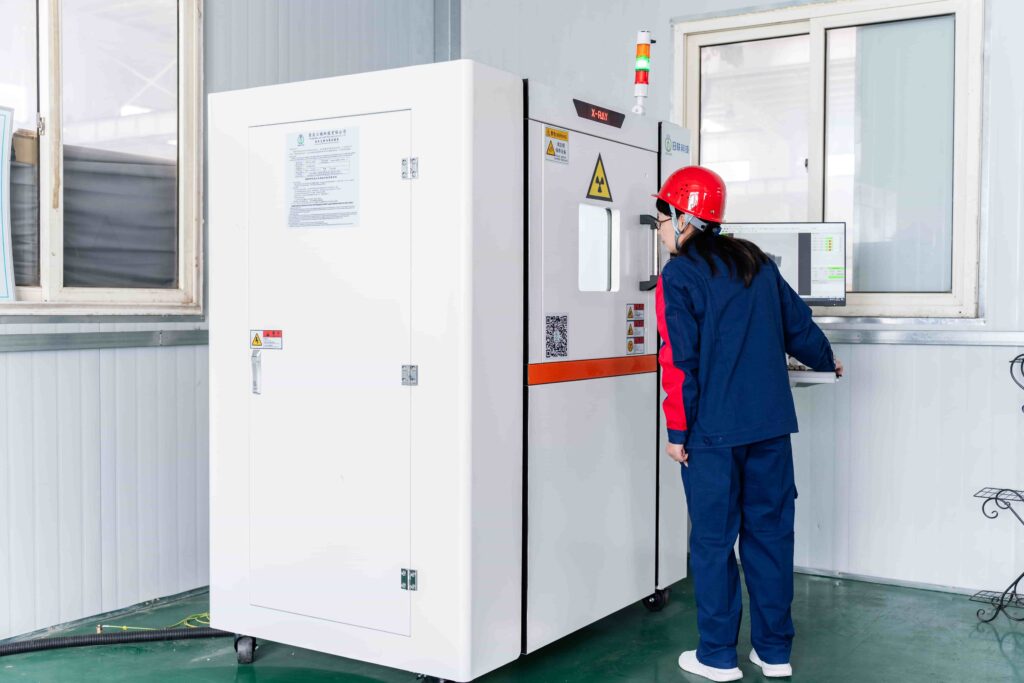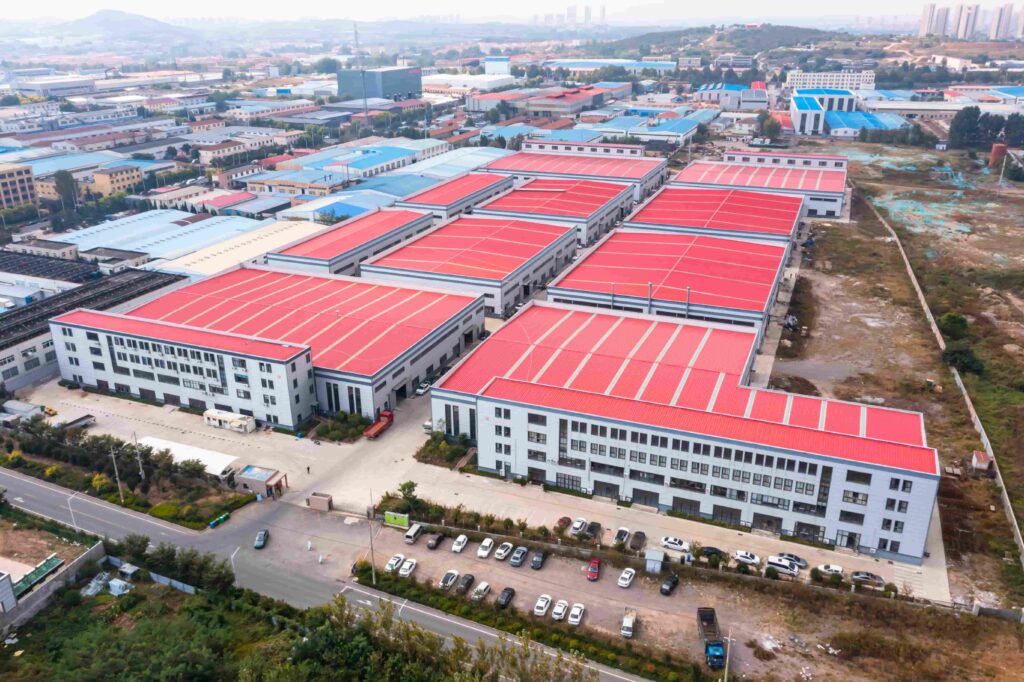Custom metal forging is essential for industries requiring durable, high-performance metal components.
Regardless of the industry, businesses of all types and sizes rely on forged parts for their strength, precision, and adaptability.
But for that, they need a reliable manufacturer.
Today, we will explore the benefits of partnering with a trusted custom metal forging manufacturer, the challenges manufacturers overcome in the forging process, and why Bunty LLC stands out as one of the top providers of custom metal forgings in the U.S.
Working with a trusted custom metal forging manufacturer brings several benefits to the table.
Here they are.
For starters, a reliable manufacturer ensures consistently high-quality components by adhering to strict quality control standards.
Quality in forging is critical because inconsistencies in metal parts can lead to structural weaknesses, performance failures, and costly reworks.
To avoid such inconsistencies, manufacturers implement rigorous inspection processes, such as non-destructive testing (NDT) and metallurgical analysis, to verify material integrity and dimensional accuracy.
This way, a trusted metal supplier is more likely to provide reliable, high-performance parts that meet industry specifications and are of the highest quality.
Custom metal forging requires in-depth knowledge of materials, stress tolerances, and production techniques.
To ensure the highest quality product, expert metal manufacturers employ skilled engineers to collaborate with clients to optimize component geometry.
In the aerospace sector, for example, forging specialists often refine component designs to enhance fatigue resistance while reducing excess material.
So, partnering with an experienced manufacturer ensures tailored components that boost performance and operational efficiency.
Working with a top-tier forging manufacturer grants businesses access to the latest advancements in metal forming technology.
Modern forging facilities utilize computer-controlled hammers, isothermal forging, and simulation software to enhance precision, reduce defects like porosity, and produce stronger, more reliable parts.
With advanced forging techniques, businesses benefit from reduced material waste, improved durability, and faster production.
Ultimately, the use of cutting-edge forging technology allows businesses to stay competitive in rapidly evolving markets.
A reliable custom forging manufacturer optimizes production processes to reduce costs without sacrificing quality.
Efficient forging operations utilize advanced material flow analysis, controlled heating processes, and precise tooling to minimize waste and improve production speed.
Since forged components often require less raw material when compared to other manufacturing methods, they are often a cheaper manufacturing option, which translates to cost savings in both material expenses and post-processing efforts.
All in all, an expert forging manufacturer can provide high-quality results while maintaining budget efficiency.
A reputable forging manufacturer meets stringent industry certifications, thus ensuring safety, performance, and regulatory compliance.
Many industries (e.g. aerospace, defense, and medical) require parts to adhere to strict quality standards including ISO 9001, ASTM specifications, and AS9100 certification).
So, by choosing a compliant metal parts supplier, you ensure that components meet or exceed industry expectations.
As you can see, there are plenty of benefits stemming from working with the right manufacturers.
Despite the many advantages of metal forging, manufacturers must still overcome several challenges if they want to achieve optimal performance, efficiency, and quality for their clients.
Here are some of the main challenges manufacturers experience, and the strategies they use to address them.
Choosing the right material is crucial for producing forged components that meet specific strength, durability, and corrosion resistance requirements.
Different applications demand different metals and alloys.
Therefore, improper material selection can lead to performance failures or increased wear and tear.
However, experienced forging manufacturers conduct thorough material analyses to choose the right metal or alloy.
Before selecting materials, manufacturers consider factors such as:
Additionally, they work closely with clients to determine the best alloy for their needs—whether it is carbon steel for heavy-duty applications, aluminum for lightweight strength, or stainless steel for corrosion resistance.
By leveraging metallurgical analysis, manufacturers can ensure that each forged part is made from the most suitable material, helping to increase its performance and longevity.

Precision in forging is essential to minimize post-processing and machining requirements.
Traditional manufacturing methods often require significant machining to achieve final dimensions, leading to material waste and additional production time.
To avoid extra-processing costs, modern manufacturers employ precision forging techniques such as near-net-shape forging, closed-die forging, and isothermal forging.
Closed-die forging has been shown to secure higher dimensional accuracy when compared to conventional open-die methods.
Expert metal manufacturers will almost always gravitate towards the above-mentioned precision forging techniques when they need to produce components with tight tolerances, reduced material waste, and improved application efficiency.
Delays in forging production can disrupt supply chains and increase costs.
To address any production delays, manufacturers optimize their workflows through several means including:
They also maintain a well-managed inventory of raw materials to prevent shortages and production bottlenecks.
For example, the use of automation in forging reduces cycle times, which allows manufacturers to meet tight deadlines while maintaining consistent quality.
By streamlining production processes and leveraging automation, manufacturers can provide quicker turnaround times, which ultimately helps businesses maintain more efficient operations.
Maintaining strict quality control is essential to ensuring forged components meet industry standards and performance expectations.
Defects such as cracks, voids, and inclusions can compromise the integrity of forged parts.
To mitigate forging defects from occurring, manufacturers use advanced inspection techniques, such as ultrasonic testing (UT), magnetic particle inspection (MPI), and X-ray analysis.

Source: Bunty LLC
These methods are often needed to detect internal and surface defects at a very small level.
For example, ultrasonic testing is used in many industries to identify even microscopic flaws (UT can detect defects as small as 2.0 mm and even less).
In a nutshell, overcoming the challenges in forging requires expertise, advanced technology, and a commitment to quality.
A reliable manufacturer will bring all these to the table. Bunty LLC is one of them.
Bunty LLC offers tailored manufacturing solutions to a variety of different industries such as automotive, aerospace, and heavy machinery, to name a few.
Here is what we offer to our clients:
We specialize in multiple forging techniques, allowing businesses to get the best manufacturing process for their specific needs.
We work with the following forging methods:
| Open-die forging | Ideal for large, custom-shaped components that require superior strength. |
| Closed-die forging | Ensures high precision and repeatability for complex parts. |
| Seamless rolled ring forging | Produces strong, circular components with excellent structural integrity. |
With these forging options, we serve a wide range of industries with customized solutions that optimize material use and enhance performance.
Our company leverages state-of-the-art forging technology to ensure every component meets exact specifications while minimizing costs.
We use computer-controlled forging equipment, simulation software, and advanced heat treatment processes to achieve superior dimensional accuracy and material efficiency.
The various forging innovations we use help us reduce waste, lower production costs, and improve product longevity for our clients.
We have successfully supplied custom metal forgings (since 2000) to industries where performance and reliability are critical.
Some of these include:
Due to our reputation for delivering precision-engineered forgings across many industries, we have become a trusted partner for companies requiring mission-critical parts.
One of the key advantages our company offers is the ability to provide fast lead times thanks to our manufacturing facilities in both the United States and Asia.

Source: Bunty LLC
Bunty’s dual-location strategy allows for flexible production scheduling, quicker material sourcing, and cost-effective solutions without sacrificing quality.
When businesses choose to partner with us, they get a reliable supply chain that meets all of their urgent project deadlines.
Bunty LLC is more than just a supplier.
We are a long-term partner committed to customer success.
From initial design consultation to final production, our team of expert forgers works closely with clients to ensure each forging meets their exact specifications.
Ongoing support, quality assurance, and a dedication to continuous improvement are what businesses can expect when working with Bunty.
So, if you are looking for a reliable custom metal forging manufacturer, look no further.
We have the expertise, technology, and industry experience to deliver high-quality forged components on time.
Contact BUNTY Today
For more information about custom metal forging and our other capabilities, contact us through our website form or request a quote here. Contact Bunty today to discuss your next custom forging project.
From a contract manufacturing firm, BuntyLLC evolved into a full service custom machined, forged and cast metal parts fabrication enterprise. We supply global solutions from our headquarters in Greenville, South Carolina.
Get A Quote